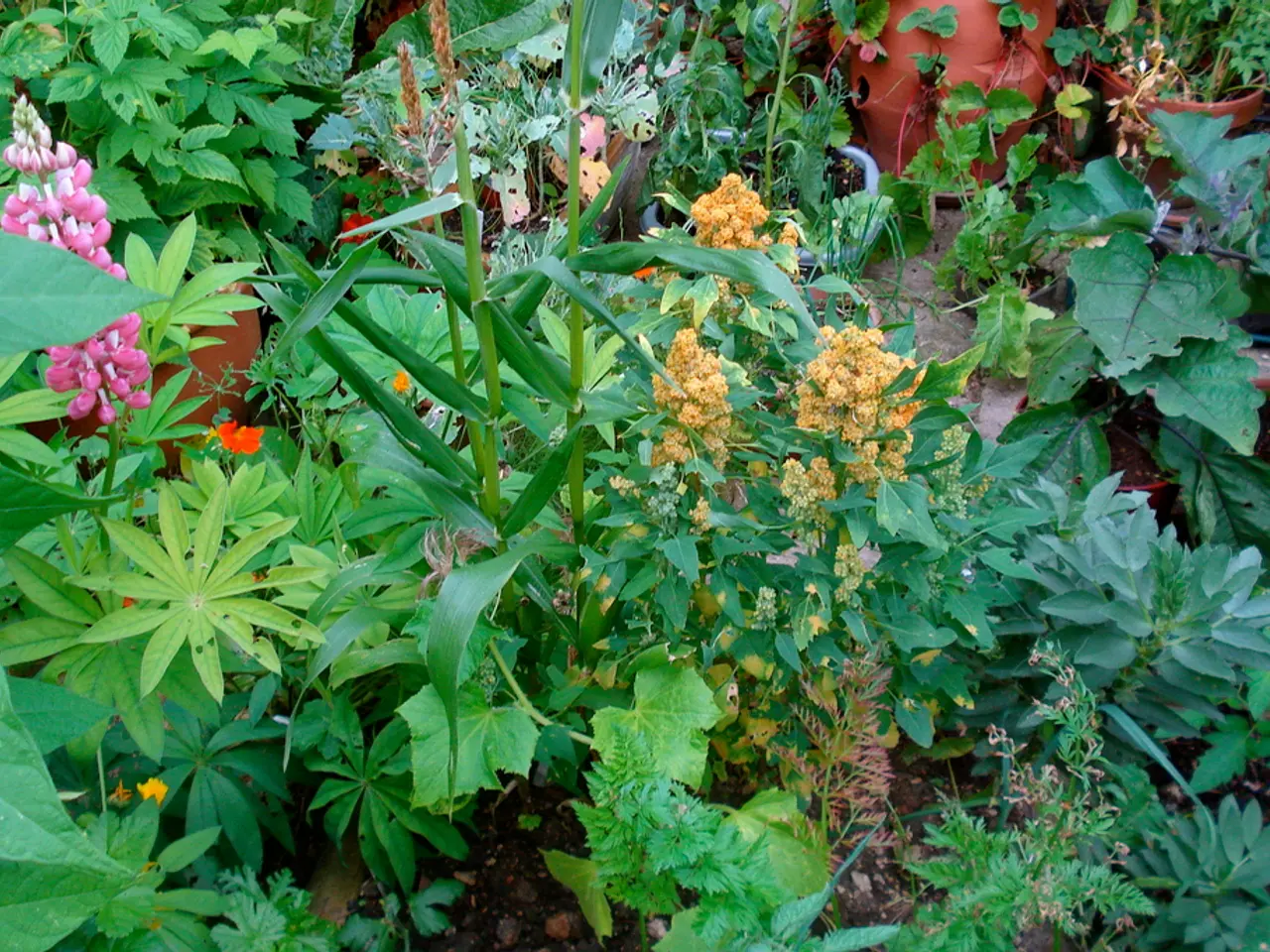Cultivating Personal Space: Gardening as a Form of Self-Care, particularly amongst Women
In today's fast-paced world, women often find themselves juggling multiple roles - caregivers, leaders, partners, parents, and professionals. The pressure can lead to stress, making self-care an essential component for maintaining mental well-being. A growing number of women are turning to gardening as a form of self-care, discovering its numerous mental health benefits.
According to Donna Letier, tending a garden is a radical act of self-care. This nature-based therapy offers a multitude of advantages, from reducing stress and anxiety to boosting mood and enhancing cognitive function. One key factor is the lowering of cortisol levels, the body's primary stress hormone, which gardening is known to achieve [1][2].
Gardening also provides a calming, meditative experience through hands-on tasks and sensory stimulation like feeling soil and smelling plants. This grounding in the present moment can help interrupt cycles of hypervigilance or emotional shutdown [1][2].
Direct contact with soil microorganisms, such as Mycobacterium vaccae, can trigger serotonin release, boosting happiness and relaxation. Additionally, sunlight during gardening increases vitamin D, linked to improved mood and better sleep regulation [2].
Gardening also stimulates memory and concentration, with evidence suggesting it supports brain health by encouraging growth of memory-related nerves, which is particularly beneficial for preventing cognitive decline [2][3].
Nurturing plants fosters a sense of accomplishment and purpose, helping women regain a sense of self-esteem, especially after trauma or loss [1][3]. The repetitive and low-pressure nature of gardening cultivates patience, focus, and emotional strength, further contributing to mental well-being.
Social connection is another significant benefit, with gardening, especially in community settings, promoting interaction and reducing feelings of isolation, vital for mental health [3].
Princess Catherine and Reese Witherspoon, among others, have highlighted the importance of mental health and taking time to pause and care for oneself as a powerful act of strength. They agree that gardening provides a chance to pause, touch something living, and take a breath.
Gardening is not just about tending to plants outdoors. Patio and desktop gardening are becoming popular forms of self-care, requiring minimal space and no green thumb. Self-care doesn't have to be complicated; it can be as simple as watering a patio herb garden or misting a desktop garden.
In conclusion, gardening offers a holistic approach to enhancing mental wellness by combining physical activity, sensory engagement, social connection, and the therapeutic effects of nature. It's a reminder that self-care is not selfish but sacred, a way to show oneself the same care given to others.
- Women can benefit from gardening's holistic approach to mental health, as it reduces stress and anxiety, boosts mood, enhances cognitive function, and lowers cortisol levels.
- Direct contact with soil microorganisms in gardening can trigger serotonin release, promoting happiness and relaxation while also increasing vitamin D levels, which are linked to improved mood and better sleep regulation.
- Nurturing plants and engaging in gardening stimulates memory and concentration, encourages growth of memory-related nerves, and can be beneficial for preventing cognitive decline.
- Social connection is a significant benefit of gardening, especially in community settings, as it promotes interaction and reduces feelings of isolation, which is essential for maintaining mental health.




